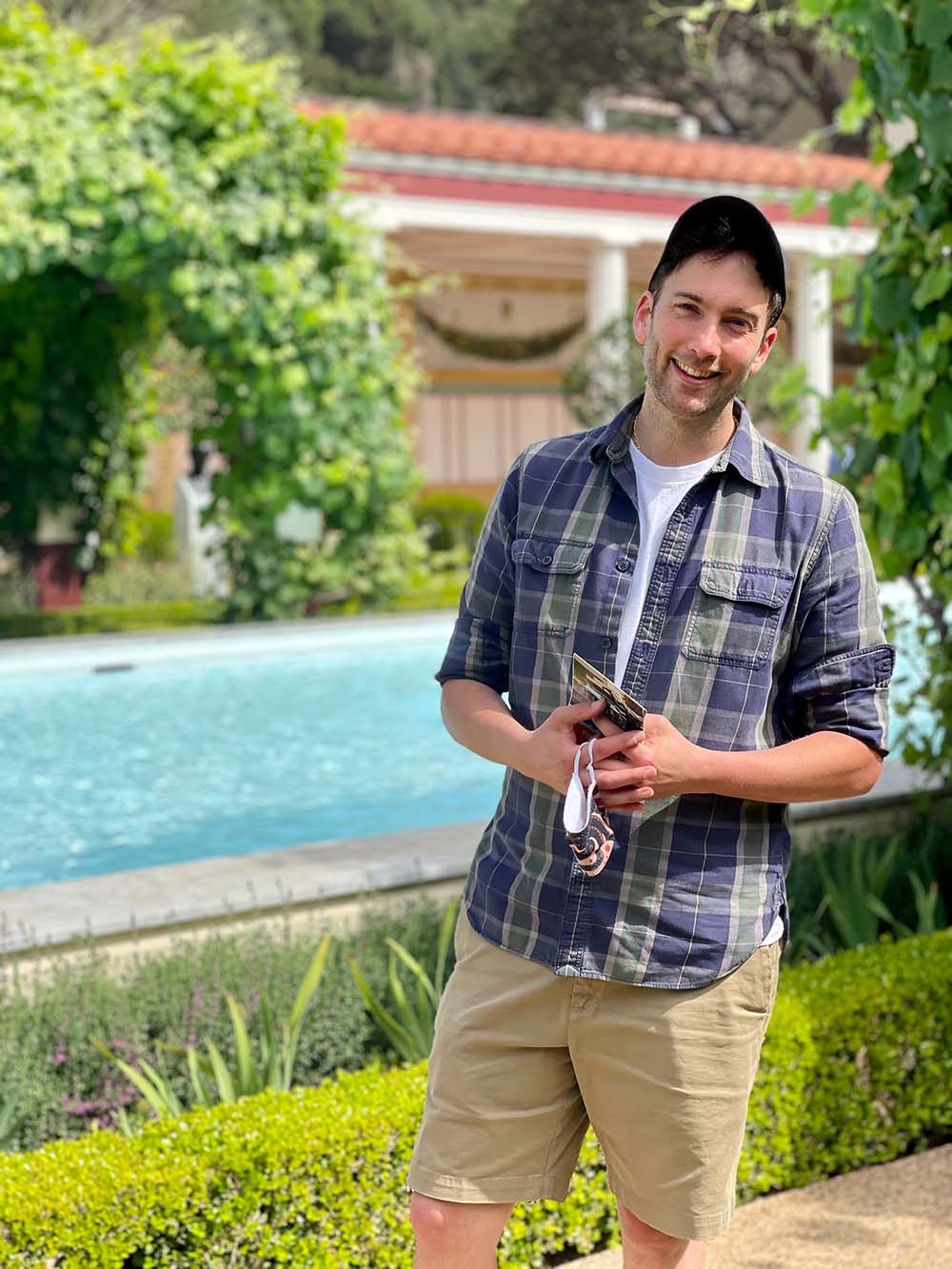Stephen Anthony Guerriero, MA'15, Ancient Greek and Roman Studies
Director of Education, Charles River Museum of Industry and Innovation
June 16, 2025
Can you describe your career path and how it has led to your current work?
My first job immediately after graduating from my Boston University undergraduate program was as an elementary special education aide in grades 3-5 at a Title I school. That experience led me into a career of classroom teaching for over twenty years, most of it teaching middle school Social Studies. I had always been obsessed with ancient history and especially Greek mythology and Roman history as a student and was able to share that passion with my classes as a teacher. In looking for professional development on ancient history and archaeology, I met (now retired but always legendary) Professor Ann Koloski-Ostrow of the Brandeis Classics Department. It was such a positive and enriching experience, I enrolled in the program for a master's in Ancient Greek and Roman Studies. That program allowed me opportunities to participate in archaeological excavations in Greece and Italy and the chance to study with some amazing scholars. Recently, I took a step closer to the museum space as I left the classroom a couple of years ago and landed as the Director of Education at the Charles River Museum of Industry and Innovation here in Waltham. I also serve as the Educational Director of an organization called The Examined Life: Greek Studies in the Schools, which is the very same professional development organization that led me to meet Professor AOKO in the first place!
What does a typical day/week look like for you in this position?
The Charles River Museum of Industry and Innovation is located on the banks of the Charles River, where Francis Cabot Lowell built the world's first modern factory - a cotton textile mill. Waltham is the birthplace of the Industrial Revolution in many ways and so that is the central narrative we tell to visitors at the museum. A typical day for me involves lots of public interaction, writing, community outreach, and expanding the museum's impact. I schedule tours, train docents, oversee all educational programming, book our Mill Talk public lecture series, write grants, and reach out to local and regional institutions for potential partnerships. It's pretty dynamic, and the biggest thing this role has in common with classroom teaching is that no two days are ever the same.
What skills from your Brandeis degree have you found most valuable in your current work?
In earning my master's at Brandeis, I was able to greatly improve my writing skills and communication around complex historical analysis and to conduct primary-source-based research to create holistic historical narratives. While at Brandeis most of my research involved Greek, Roman, and Etruscan source material, the skills of navigating them easily translate to what I do now. Just recently, I've visited the Baker Library at Harvard Business School and the Massachusetts Historical Society to conduct original research on Francis Cabot Lowell that will help us better understand his pioneering work in building the first large private corporation in American history - informed in part by his work as a Boston rum distiller.
What advice do you have for current students as they embark on their career exploration or job search?
The best piece of advice I can share in terms of career exploration would be to be your own best coach, and don't be afraid to advocate for yourself. A primary way to do that is to meet people, be genuine in your interactions, and increase the 'surface area' of your luck by casting a wide net. That means exploring roles that might not be obvious - for example, if you're interested in education you might only consider classroom instruction. But you may not know that both Gucci and Panera Bread have recently posted roles for Instructional Designers. Ultimately, there is no substitute for in-person interaction. The job search can feel isolating if you only do it online. Instead, you should join professional organizations, attend meetups, and maybe reach out to folks on LinkedIn whose careers you admire and ask if you might chat for a few minutes about how they got where they are. And one last piece of advice - don't fall into the trap of thinking that any job (or career path) is forever. People like me take winding routes to their current careers, and I still think about what possibilities the future might hold even at this stage.






